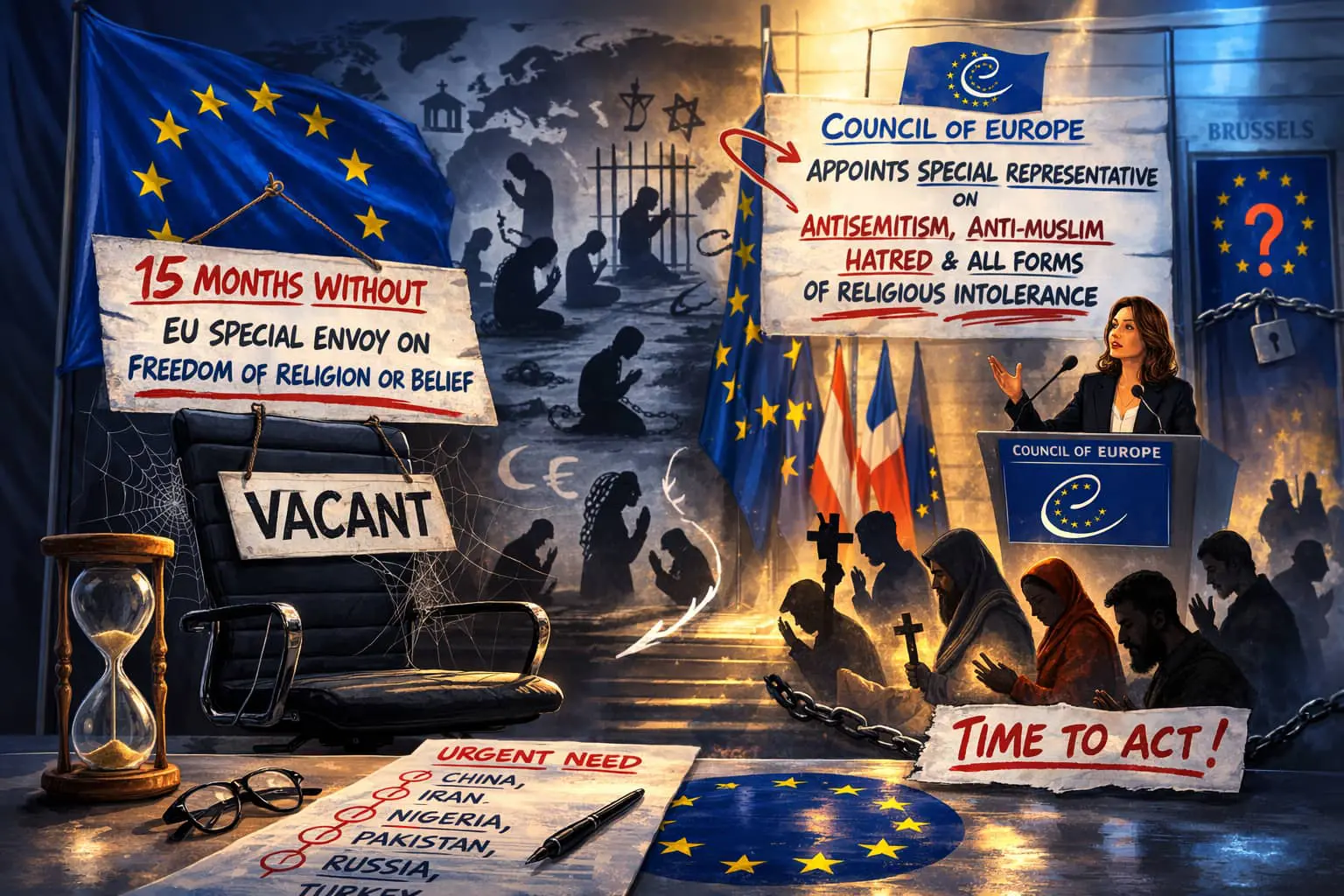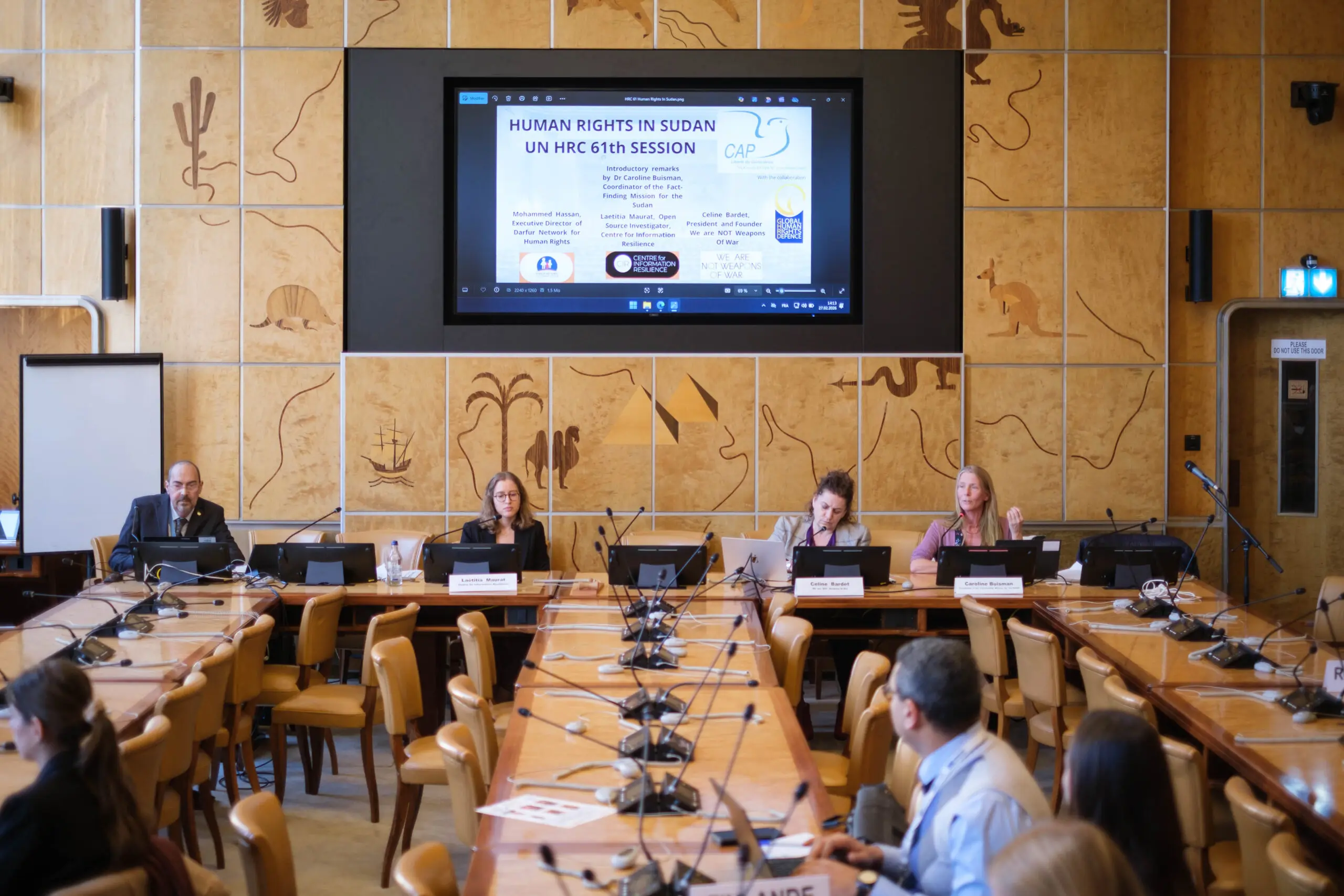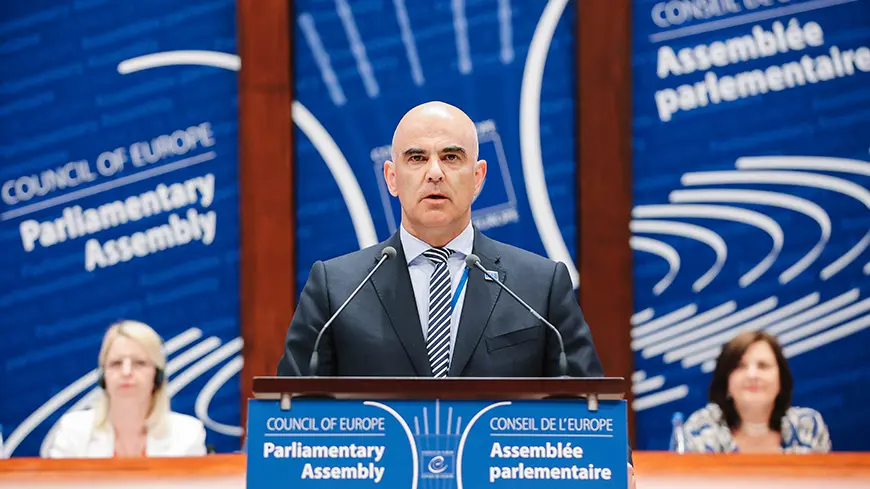Neither new nor foreign (Ni Nueva, Ni Ajena) – Spanish Federation of Municipalities (FEMP) and the state Foundation Pluralismo y Convivencia, have launched an exhibition to promote tolerance, diversity and coexistence between religions.
On the International Day for Tolerance, Félix Bolaños, who is the Minister of Presidency of Spanish government (a ministry under the prime minister’s office) has called for it to become an “essential value in any local public policy”.
Madrid, 16 November 2022. – Diversity and coexistence between religions – Promoting local policies that reinforce tolerance and respect for religious diversity with a view to fostering coexistence was the aim of the First Forum of Municipalities for Tolerance, a meeting that was opened last week in Madrid at the headquarters of the Federacion Española de Municipios y Provincias (FEMP) (Spanish Federation of Towns and Cities) by: the Minister of the Presidency, Félix Bolaños – the Secretary General of the FEMP, Carlos Daniel Casares – and the Director of the Pluralism and Coexistence Foundation, Inés Mazarrasa.
On the International Day for Tolerance, they all called for local commitment to integration and encouraged towns and cities to join the Network of Municipalities for Tolerance (MxT), which already includes a large group of Local Governments that have been developing experiences in this field.
The Secretary General of the FEMP, Carlos Daniel Casares, stated that “however diverse beliefs may be, tolerance among all of them is a mutual enrichment” and it is this tolerance that “facilitates coexistence in our towns and cities”. Casares also highlighted the commitment of the FEMP and the municipalities participating in MxT in this area, and invited other local governments to join in and develop experiences and initiatives. He also recalled the collaboration that the Federation and the Pluralism and Coexistence Foundation have maintained for several years, and thanked the Ministry of the Presidency for its support, with which the FEMP also maintains other lines of collaboration.

For his part, the head of the Ministry of the Presidency, Félix Bolaños, pointed out the importance of “making cities more inclusive places”, and warned of voices that “make intolerance their hallmark, that demonise those who are different”, something that must be denounced because it represents a “threat to our democracy and coexistence”. “Those of us who believe in inclusion have to combat these ideas democratically and take the side of public authorities and administrations”, he added.
Bolaños referred to the FEMP as a “body for redistributing best practices and public policies” and described this work as “commendable and essential”, especially for municipalities with less than 5,000 inhabitants. “This is what Spain is all about, making life better for citizens,” he said. In his opinion, local initiatives in this framework generate spaces for sharing experiences, and connect “with those who do not want to take a step backwards in terms of coexistence and tolerance”. Finally, Bolaños praised the actions of local governments and their policies and said that “you are essential in the work for coexistence and tolerance”.
Also at the opening ceremony, Inés Mazarrasa, Director of the Pluralism and Coexistence Foundation, pointed out that the local councils involved in the MxT programme share the same common objective, “to be instruments for achieving an inclusive coexistence, in which all options of conscience, religious or otherwise, can live together in full equality and respect”.
Mazarrasa announced the creation of a new working tool designed to help local councils to specify in an action plan different measures based on the principles of the Charter for the municipal management of religious diversity. In this regard, and in line with the Sustainable Development Goals set out in the 2030 Agenda, he pointed out that “the aim is to contribute to progress in guaranteeing equal opportunities and in the commitment to leave no one behind”.
Neither new nor foreign – Religious Diversity in Spain.
At the same time, the FEMP headquarters is hosting the exhibition, inaugurated the same day by the FEMP, the Foundation Pluralism and Coexistence and Mercedes Murillo, Director of Religious Freedom of the Spanish government, which gives an account of the road travelled on the path towards religious freedom as a constitutional right in our country. “Neither new nor alien” is the title of this exhibition by the Pluralism and Coexistence Foundation, which has installed fifteen panels in the FEMP spaces that include texts and images referring to the great diversity of religions found in the country, from Catholicism, Evangelical Christianity, Islam, Judaism, Buddhism and Hinduism, to other more recent but well-established religions such as Baha’i, Scientology, the Church of Jesus Christ of Latter-day Saints, Jehovah’s Witnesses, Pagans, etc.







